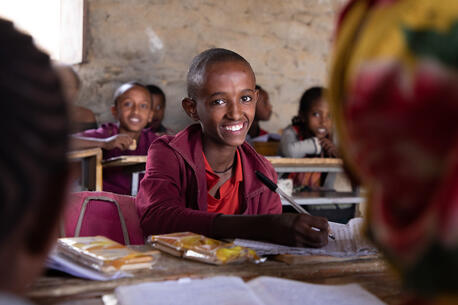
Healthy Minds, Healthy Bodies in Ethiopia
An innovative program in Ethiopia is keeping girls like 14-year-old Mellion in school by providing a high-energy biscuit when they need it most. The First Emergency Response, delivered by UNICEF with funding from Education Cannot Wait, is providing new hope to girls and boys impacted by the crisis in Tigray and beyond.
As students in northern Ethiopia have been pushed from their schools by the converging challenges of COVID-19, conflict and climate change, children are going hungry, families are losing their homes and their livelihoods, and dreams are being forgotten forever.
In these critical times, rays of hope are emerging. This is the story of Mellion — a bright-eyed 14-year-old girl — whose dreams have been restored with healthy school snacks, quality learning environments and new hope for the future.
When COVID-19 hit, Mellion's school closed. She didn't know at the time that it would be two years before she could return to the classroom.
“During that period, I was forced to sell roasted beans and maize in the local market to support my family,” says Mellion. “It was the worst experience I have ever had. Sometimes people on the street would steal from me, beat me up or refuse to pay. My income was just $2 to $3 a day.”
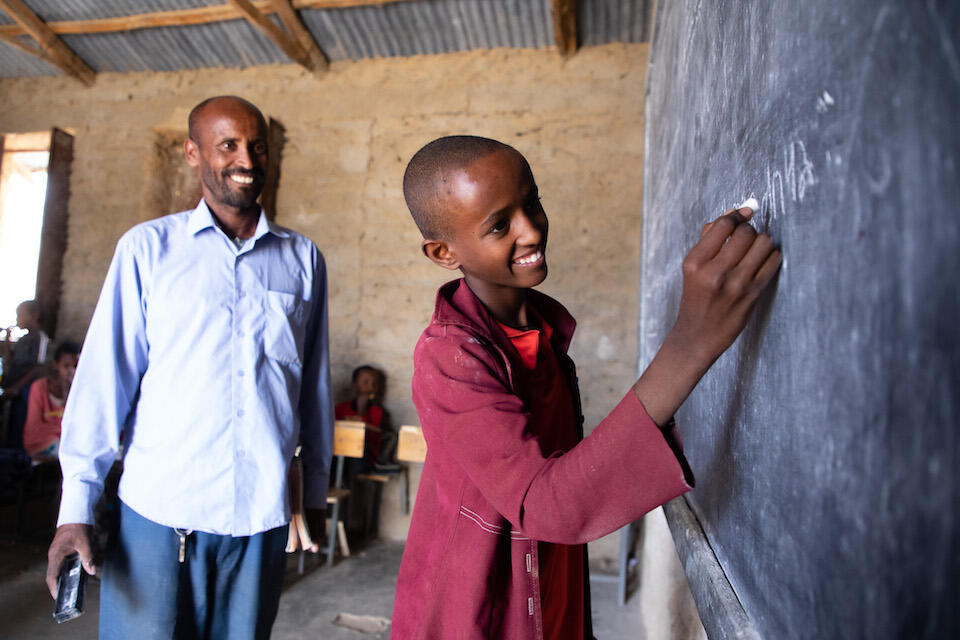
Mellion is tenacious, strong and resilient. With the support of her family, she finally returned to school after the COVID shutdowns and the hunger, fear and abuse she faced in the streets.
But when you are hungry, when you live in poverty, when your childhood is interrupted by traumatic and life-changing experiences, it’s nearly impossible to learn. It’s nearly impossible to return to normal.
"After my school reopened, I stopped selling in the street and my mom encouraged me to go back to school,” says Mellion. “However, with our small savings, we didn't have much to eat at home. I only had two meals a day and often missed breakfast. Because of this, I was often very weak and lacked the energy to learn. After a while, I ended up gradually missing school and then giving up.
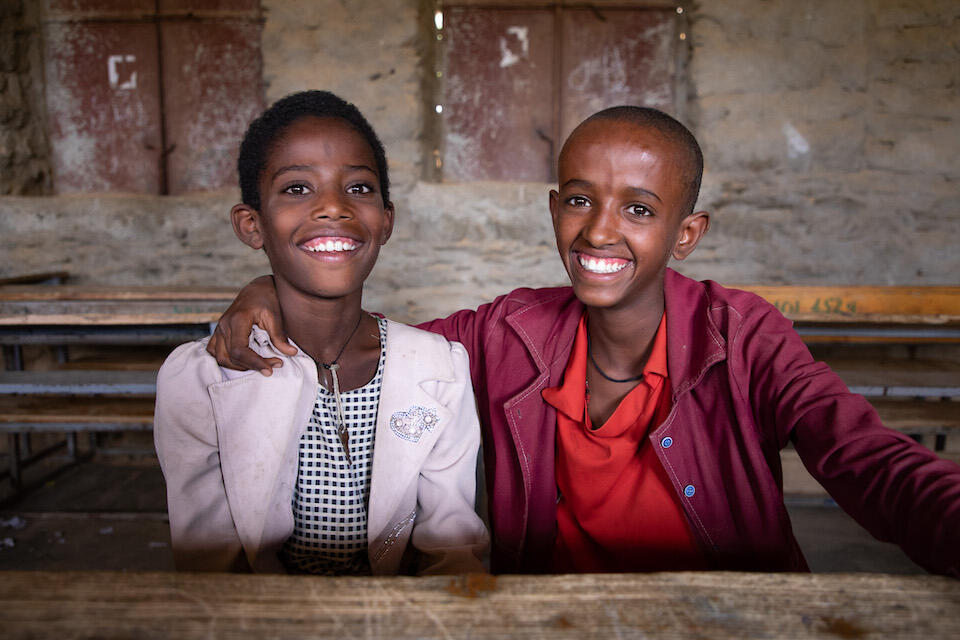
This is an all-too-familiar cycle across much of sub-Saharan Africa. A crisis hits, and with little or no savings, children are forced to drop out to feed themselves and their families. Risks are compounded by droughts, disasters and other fast-acting emergencies, and negative coping mechanisms push children further from the safety and protection that schools provide. On top of all this, if they are actually able to go to school, they are often too hungry to learn, teachers are untrained and hungry themselves, and the quality of the learning suffers.
Malnutrition is part of everyday life in Ethiopia, and four out of ten children under 5 are chronically malnourished. This food insecurity affects academic performance, concentration, memory, mood, and motor skills, all of which a child needs to be able to be successful in school.
One of the worst droughts in decades is making matters even worse. Climate change isn’t just a headline for girls like Mellion, it’s a matter of life and death.
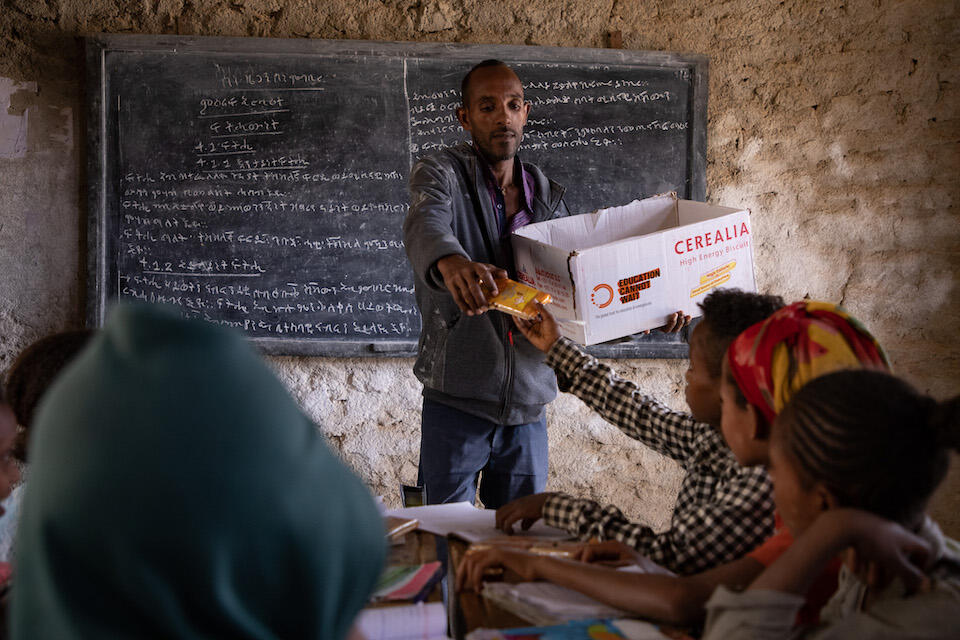
To address the grave threats facing Mellion and thousands like her, UNICEF started providing students in the area with high-energy biscuits through an innovative First Emergency Response funded by Education Cannot Wait (ECW), the United Nations global fund for education in emergencies.
"Sometime later, my friends told me that the school was now distributing biscuits to give us strength during the day," says Mellion. "That convinced me to come back to school. I was very happy! I love attending school. We play and learn. Now, I have more energy in the morning, and I can concentrate on my education. My favorite subject is social science.”
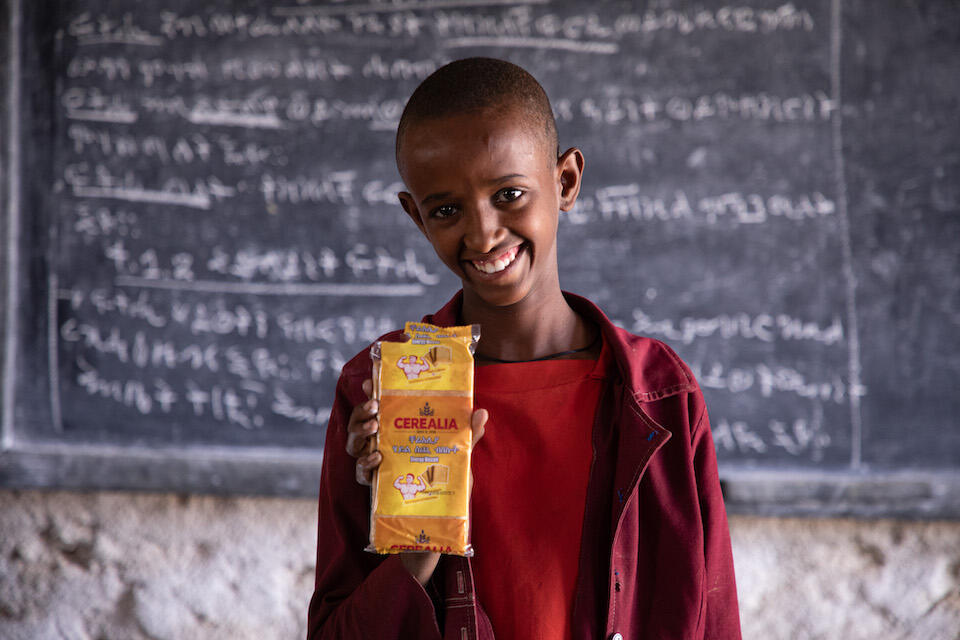
Mellion isn’t alone. Since its inception in 2016, ECW has invested more than $59 million in Ethiopia through a variety of grants delivered by local and international partners including UNICEF. The investments have reached more than 275,000 children, built or rehabilitated over 250 learning spaces, and provided school feeding programs to more than 60,000 girls and boys. Research indicates that school meals programs can increase enrollment rates by 9 percent and school attendance by 8 percent, proof that investing in healthy bodies as well as healthy minds yields significant results in keeping children like Mellion in school.
“Before, I didn't have dreams,” says Mellion. “But now, with my best friend, Fasika, we often talk about the future. Me, I want to become a doctor to take care of people who need help.”
Join UNICEF, ECW and strategic partners worldwide in providing girls and boys like Mellion with access to safe learning environments, healthy meals and new hope. Make your donation today.
Raphael Pouget is a communication specialist for UNICEF Ethiopia; Kent Page is Chief of Communications for Education Cannot Wait.


